
The SaaS Tools 2025 world is growing faster than ever. Did you know that the global SaaS tools market is bound to touch $1228.87 billion by 2032? Nowadays, businesses have started depending on SaaS tools to reduce expenses, make the processes more efficient and increase the levels of innovation.
However, with these numerous selections, how do you find out the best?
The choice of the trending SaaS tools makes all the difference. Well, instead of guessing, understanding these trending SaaS tools before use is always a good idea.
So in this blog post, I wanted to highlight 10 of the best trending SaaS tools for 2025 that can help you to transform your business.
Well, what are SaaS tools and how could they enhance your business operation?
What are SaaS Tools?
SaaS (Software as a Service) is a cloud application that provides you access to the software without installation and maintenance. They help in improving business operations, bringing people’s collaboration together in a more well-organized way, and also increasing productivity.
As per recent statistics, 78% of organizations utilize SaaS applications to store business-related data, and 54% of companies use SaaS tools to increase productivity. SaaS tools have been utilized across industries for project management, CRM, and other tasks that can be performed on a scalable and cost-effective basis.
Top 10 Productivity and Collaboration Tools for Businesses
Seeking the best productivity and collaboration tools that enhance teamwork? Here are the top 10 productivity and collaboration tools that enhance the productivity and speed of work of businesses.
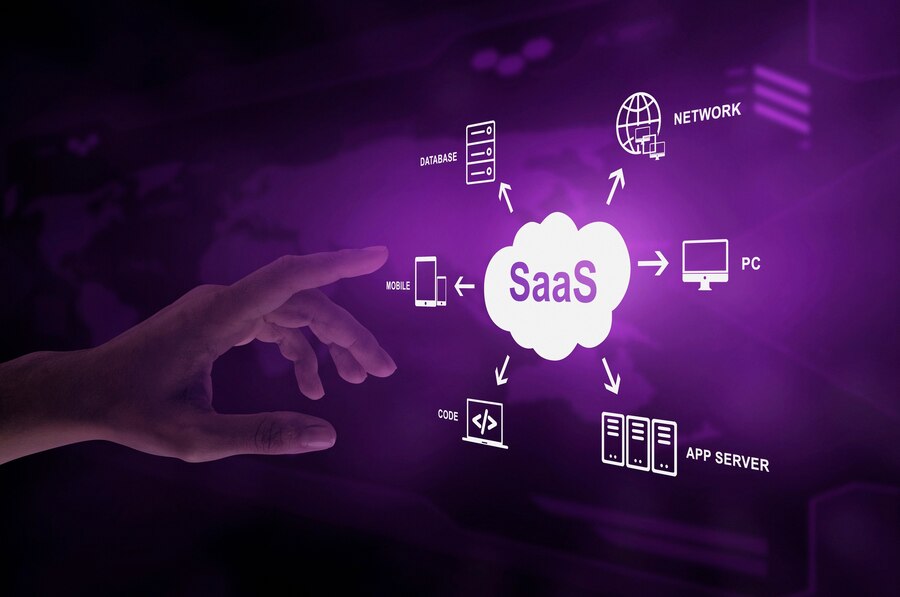
Picture Source: Freepik
1. HubSpot
HubSpot is a customer relationship management (CRM) tool that helps businesses manage customer interactions. It has solid marketing automation, sales tracking, and customer service tools that boost productivity. Businesses get a user-friendly interface with strong analytics, allowing them to get valued insights into their clients’ demeanor and tailor their methodology to that. It supports integration with multiple platforms and that makes HubSpot a complete solution for market, sales, and service teams.
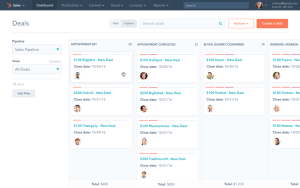
Key Features:
- Contact management for organizing leads
- Email tracking and automation
- Marketing campaign analytics
- Sales pipeline management
- Live chat for instant customer support
Best For: Businesses of all sizes, especially marketing and sales teams.
2. Salesforce
Salesforce is a top-notch CRM software that allows companies to manage and optimize their interactions with potential customers. It offers an AI environment, automation, and real-time analytics for better business decision-making. Also, the platform connects very nicely with many third-party applications so that it will have flexibility and scalability. Salesforce allows businesses to track leads more efficiently, smoothly manage sales pipelines, and supply superior customer support.
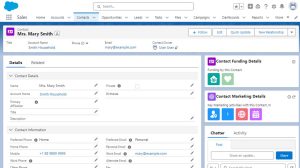
Key Features:
- AI-driven sales insights
- Automated workflow management
- Lead tracking and nurturing
- Real-time data analytics
- Mobile access for remote teams
Best For: Enterprises, SaaS companies, and B2B businesses.
3. Trello
Trello is a tool used for project management that makes it easy to collaborate and organize tasks. It provides a user-friendly drag-and-drop interface that lets users handle projects by means of custom-made boards, lists, and cards. Trello provides real-time collaboration features such as staying aligned in tasks, deadlines, and project updates. No matter what size project you are managing (large, or small), Trello can be used to keep you organized.
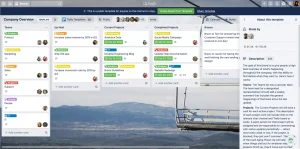
Key Features:
- Drag-and-drop task management
- Team collaboration features
- Deadline reminders and notifications
- Customizable workflows
- Integration with productivity apps
Best For: Startups, marketing teams, and small businesses.
“Customers won’t care about any particular technology unless it solves a particular problem in a superior way.” ~ Peter Thiel, co-founder – PayPal
4. Slack
Slack is an advanced business team communication tool to manage the internal needs of the business. This is a software that fosters collaboration by providing real-time messaging, file sharing, and video conferencing. One of the essential parts of any modern workspace is Slack due to its integration with other tools, such as Google Drive, Trello, and Zoom. Teams can communicate efficiently within organized channels along with a search-friendly conversation history that does not strain teams from email overload.

Key Features:
- Instant messaging with channels
- File and document sharing
- Video and voice calls
- Integration with other SaaS tools
- Searchable message history
Best For: Remote teams, corporate businesses, and startups.
5. Zoom
Zoom is one of the most used video conferencing tools, which allows for easily conducting virtual meetings, webinars, and collaborating online. Zoom is a high-definition video and audio, screen sharing, with strong security features tool that has become essential to businesses, educators, and remote teams. A user-friendly interface coupled with safe connections makes virtual communication seamless and effective.

Key Features:
- HD video and audio conferencing
- Screen sharing and recording
- Virtual backgrounds and filters
- Webinar hosting capabilities
- Meeting scheduling and reminders
Best For: Remote teams, educators, and businesses conducting virtual meetings.
6. Asana
Asana is a complete project management software tool that assists businesses in tracking tasks and managing the workflow. This enables teams to have a clear plan for organizing and conducting projects. However, thanks to Asana’s task automation, it does not need to be complicated: tasks are automated, and you can track each job in detail. Asana allows you to simplify project management with intuitive task boards, customizable workflows, and integrations with other tools like Slack, Dropbox, Trello, Google Drive, and more.
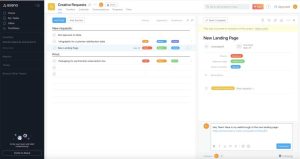
Key Features:
- Task assignments and deadlines
- Workflow automation
- Project progress tracking
- Calendar and timeline view
- Integration with business tools
Best For: Marketing teams, product managers, and business leaders.
“Businesses talk a lot about customer loyalty. It makes sense: A person you can count on to buy from you again and again is more valuable than one who disappears after the first transaction.” ~ Mikkel Svane, co-founder – Zendesk
7. ClickUp
ClickUp is an all-in-one productivity tool that works for managing projects, tracking tasks and team collaborating. This comes as a highly flexible solution to cater to several business needs due to offering a great number of customizable features. ClickUp helps teams be more efficient and organized with the ability to share real-time documents, support goal tracking, and advanced reporting.
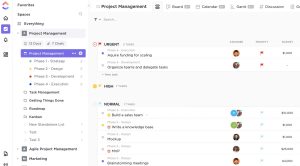
Key Features:
- Customizable task views
- Team collaboration tools
- Goal tracking and reporting
- Integrations with third-party apps
- Real-time document sharing
Best For: Startups, SaaS businesses, and remote teams.
8. Notion
Notion is a powerful all-in-one workspace that is a combination of note-taking, document collaboration, and task management. Users can respectively create custom databases, wikis, and project boards using a very nice user interface. For teams who need to centralize their work, streamline their processes, and bring work (collaboration) together, Notion is the perfect fit.
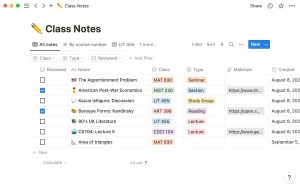
Key Features:
- Customizable workspaces
- Team collaboration tools
- Database and knowledge management
- Integration with third-party apps
- Multi-device synchronization
Best For: Entrepreneurs, content creators, and business teams
9. Airtable
Airtable is a flexible database and project management tool based on a spreadsheet interface powered by the database. The biggest advantage is that it helps teams to work like an organization, tasks, and collaborate on projects more efficiently.
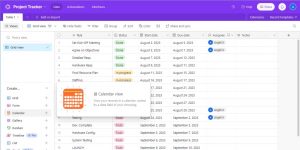
Key Features:
- Customizable database tables
- Drag-and-drop organization
- Integration with business tools
- Real-time collaboration
- Data visualization options
Best For: Data-driven teams, project managers, and marketers.
10. Monday.com
Monday com is a work management tool that allows for project tracking, team collaboration, and workflow automation to easily do. If a business wants to improve productivity, its visual dashboards, automation features, and integrations make it great for them.
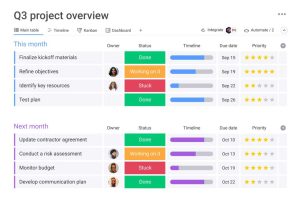
Key Features:
- Customizable workflow automation
- Visual project tracking
- Team collaboration tools
- Integration with third-party apps
- Real-time progress updates
Best For: Businesses, project managers, and remote teams.
SaaS Tools 2025 Conclusion
Selecting the right SaaS tools can be a point of success in the long run.
For businesses, SaaS tools should help make the company more efficient and save money. In 2025, effective use of SaaS tools will be a difference maker.
Some key takeaways are:
- Always select trending SaaS tools that fit your business needs.
- Focus on user-friendly trending SaaS tools for better productivity.
- Keep updating your trending SaaS tools to stay ahead.
- Analyze performance and optimize SaaS tools regularly.
- Invest in SaaS tools that offer scalability and security.
If you wish to grow and boom in 2025, then it is about making smart choices and using the best SaaS tools available in business in 2025.
Harikrishna Kundariya, Co-founder and director of eSparkBiz, is a marketer, developer, and IoT and cloud expert with 14+ years of experience delivering digital solutions for startups.

![5 Bold Predictions for AI in 2025 [Infographic] hero-image-AI-Predictions-2025](https://www.skillzme.com/wp-content/uploads/2025/02/hero-image-AI-Predictions-2025-200x200.jpg)
![Harnessing Linkedin’s Professional Network For Growth [Infographic] Linkedin’s Professional Network](https://www.skillzme.com/wp-content/uploads/2025/02/hero-image-Linkedins-Professional-Network-200x200.jpg)
![The Construction Labor Shortage [Infographic] hero-image-addressing-the-construction-labor-shortage](https://www.skillzme.com/wp-content/uploads/2025/01/hero-image-addressing-the-construction-labor-shortage-200x200.jpg)
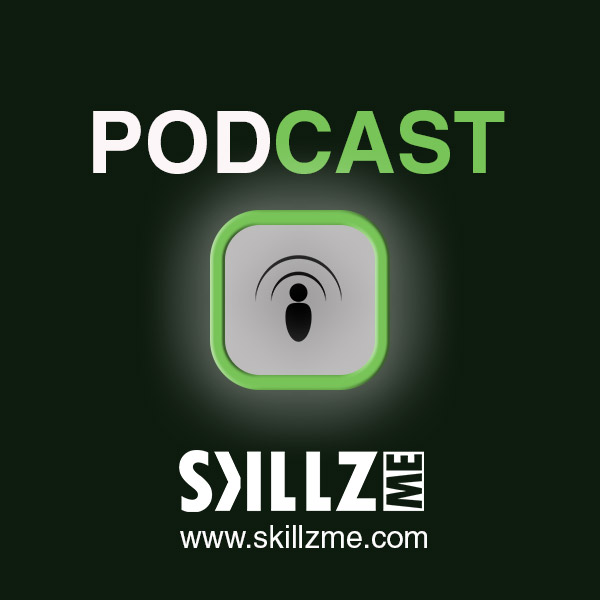

Recent Comments